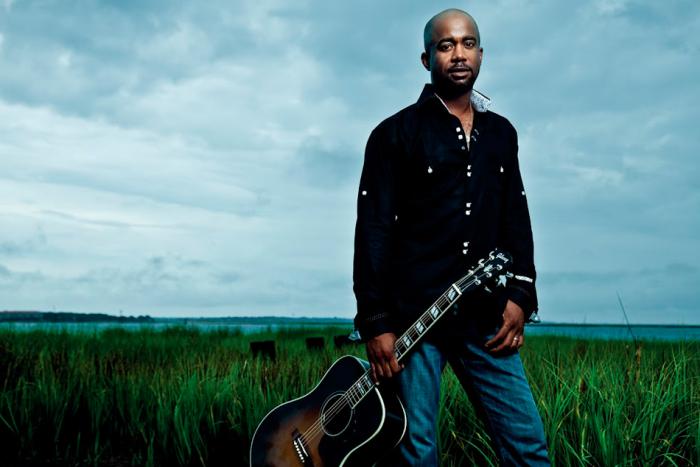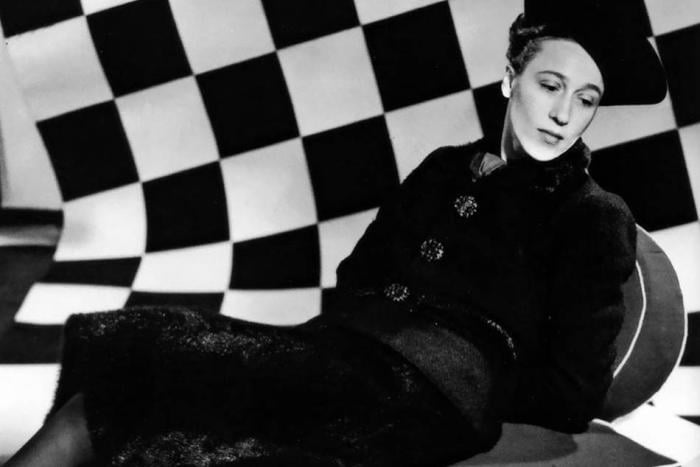Before publishing her latest collection, Vampires in the Lemon Grove, Karen Russell spent ten years in a make-believe swamp, inspired by her childhood home near Miami. This rich, consistent world held most of characters in her first short story collection, St. Lucy’s Home for Girls Raised by Wolves—published when she was just 25—including the Bigtree family, alligator wrestlers struggling to keep their theme park afloat and the subjects of her debut novel, Swamplandia!, a 2012 Pulitzer finalist. If you read both, you’ll know why she stayed for as long as she did: Russell’s prose gives the swamp the vividness of a dream.
But the author has moved on, and Vampires leaps time and space: to a silk mill in Meiji-era Japan (“Reeling for the Empire”), a lemon grove in Sorrento (“Vampires in the Lemon Grove”), a homestead on the great plains (“Proving Up”), a stable where presidents are reincarnated as horses (“The Barn at the End of Our Term”). And these places are often terrifying. Russell’s work, like that of Lewis Carroll or Gabriel García Márquez, is fantastic and insidiously dark—a backdrop against which the humane becomes starker. She writes the horrible with a terrifying clarity, and the stories in Vampires, though they have the character of fables, are by turns grim, disturbing, and compassionate. She inhabits the predator as well as the predated, and her characters both suffer and thirst for blood empathetically.
Hazlitt caught up with Russell over the phone from Philadelphia. She apologized for her ineloquence and proceeded to speak eloquently about dream geography and horror films.
--
You said in an interview recently that the interior has always been more real to you than the exterior world—
Did I say that? Oh no! I sound like a crazy person.
But it was interesting, because in another interview you said you spent “most of your 20s in that goddamn swamp.”
That is true, that is true.
Can you talk a bit about the experience of leaving?
It was exciting and painful to leave that world, because it was as real as my real life for a long time, as insane as that sounds. And it wasn’t even the kind of thing where you can say she splits her time between the Duane Read and Swamplandia!—it wasn’t any kind of clear division, it was just this interpretive filter for my whole world. And I was living in New York, on 181st street, so not the swampiest environment, but I was spending so much time in my imaginative life, in this really lush, humid, terrifying place. [Finishing it] was a little bit like the experience of waking up. You’re sort of blinking around and disoriented and have that what-just-happened feeling. For a few months after my initial elation of, “Oh my god, I don’t have to tie three more years to the Bigtree family, to these imaginary people who have been my slave drivers for years.”
I miss them, too. You sort of live through them. Finishing a project is sort of like sending yourself into exile. I’ve been working on this second novel, and it’s a vastly different landscape, and I feel a little unsettled. Swamplandia! was so close to my actual backyard in south Florida that it felt like going home, to spend time there.
Which is set in the dust bowl, right? And you’ve been there before in your fiction.
Yeah, I have a real agrarian fetish or something. Growing up, I loved stories about girls and horses and things like that, and that kind of relationship to the land. The farm was just the most exotic place growing up in the suburbs of Miami. I think all kids have that animal connection, so to have this whole menagerie of animals in your care—I don’t think I was really putting it together that you’d be slaughtering those animals at the time. But there’s something to it, now as an adult, the frontier.
Do you find that you’re inclined to be geographically monogamous, in terms of the world where you want to be spending your imaginative life?
Well, that’s what was so good about doing stories, because I don’t. I have restless leg syndrome as a writer. And I like to have the really intense experiences of these imaginary worlds, but I like to move around, too, so it’s also fun to go from Meiji-era Japan, this nightmare factory, to a shitty massage parlour in Wisconsin, to the afterlife.
But speaking of being geographically monogamous, what’s interesting to me about the story of the dustbowl is that these people landed on their homestead, with fresh optimism, and dug in with such tenacity. It’s a little like Swamplandia!—even when you’ve had seven seasons of drought, the costs are astronomical, you’ve lost everything, it’s time to go—these people didn’t go. Their monogamous attachment to the land is interesting to me. There’s something kind of perverse and amazing about that loyalty that I think is what initially got me excited about the question: why would they stay, how did they stay?
This is kind of a woolly question, but I wonder about the relationship between the worlds you create and the world of human endeavour, the world we’re all in.
Ooh, that is a woolly question, but I like that a lot. I think a lot of the fiction that I really love, even if it’s engaged with the world of the present, and the politics of the present—even if it’s using it as lumber to build this imaginary place—it ends up feeling universal and timeless. So One Hundred Years of Solitude, which is a very political critique, it also feels like a myth. It’s just completely itself, in its own dimension, operating by its own rules.
I really value that space where you can consider. It’s not escapist, it’s not like you’re somehow escaping the power structures that order life, or the real grief and sorrow that a life can contain, [but] if writers can create a place where you’re lifted out of the stream of time, you can see more clearly, I guess. Kafka is somebody else, or Orwell even, where there are direct links to political figures, or to this war, to that controversy, but it’s not allegorical, in the sense of a correspondence of fantasy to the real world. It’s its own thing. I don’t know really how that happened in my fiction. If it’s happening I’m glad to hear it, but I think that’s reflective of my own influences, and what I like as a reader. I love realist stuff that comments directly on the world we’re living in, too, but it’s just that sense of getting lifted out of time. I think Saunders can do that, where in a way it couldn’t be more relevant to last Tuesday, but he’s getting at some universal dimension, some Chekhov constant in human nature that you’re able to feel.
I guess I wonder, if you’ve steeped yourself in research for a story, and it’s—I’m going to sidestep the worst possible analogy I can make here, which is digestion—
[LAUGHS] I think that’s a really good analogy, because I wouldn’t feel comfortable imagining some of those places if I hadn’t done that research. I wouldn’t feel like I had any authority to imagine a place like Nowhere Mill if I hadn’t read a lot of accounts of these silk reelers during that period. Because then you have a kind of literal bedrock, where you can ground even the most fantastic details. But I think--for me anyway--I have to move it away from a sense of my reality to feel that I have license to say something true. I would panic if I was trying to write straight historical fiction. I get so nervous about getting it right, that I lose the forest for the trees. It feels too much like a book report on the world we live in if I try to write straight historical fiction.
I might be reading too much into this, but I wondered if there was a comparison between Osceola from Swamplandia!, who lives in this parallel world among ghosts, and her writer, who lives in a parallel world among characters.
[LAUGHS] No I love that, and I wish sometimes that I was totally possessed, but it’s never like that for me. I hear writers talk about that and I’m so envious, where they’re taking dictation from the spirit world, or automatic writing from the point of view of their character. I never really lose the sense that I’m just a short girl writing, and making these people up. I’ll hear Ava’s voice, but it’s nothing so kooky and all-consuming as Ossie’s possession. It is a weird thing to try to do, imbue people that you made up with life and agency. That’s weird.
What are your interests outside of literature?
Well, I love film—I’m jealous of film and the visual arts. I’m living right now next to the [Philadelphia Museum of Art], where they have this outsider art exhibit, and I love going there. I really think Ava and Ossie would get along with those Vivian Girls. A weird birthday party under the sun with some hermaphroditic terror.
I was going to ask about your feelings about horror.
Oh, I am a big fan of horror films! My siblings and I are big horror geeks. There’s something cathartic about watching them and getting really freaked out together. We were just watching one called Triangle, which I thought was great. A lot of existential dread in there—it’s this Bermuda Triangle horror story, where a boat shows up with no crew, and no captain, just a haunted ship. It’s a little like Danny Boyle’s Sunshine, except at sea.
Or Event Horizon.
Yes! Event Horizon. But on a pleasant sunny day at sea. It’s pretty gory, but it’s great.
Horror has this tendency to take the edge off terrible things—it’s like, here are monsters, and they can kill you, but death is not the same in this world. But I find in your stories, the terrible is really terrible.
I think that’s the danger, sometimes, of horror: it can have a blunting effect, or a deadening effect. You kind of numb out as a viewer. So I really try. With “Reeling for the Empire,” too, I didn’t want it to be just a comic book revenge fantasy. I was really thinking about this woman’s interiority, and what it might mean...Is there any way to move beyond traumatic repetition of one really terrible memory?
And it’s starker for being in this fantastic setting.
Yeah, I hope, right? You can see it differently because you’re awake as a reader, it’s this decontextualized place. That’s how some of that fantastic literature works for me—it’s kind of like the feeling of being abroad, where you’re not inured to your surroundings, so you’re really awake, you’re paying attention, everything’s vibrating at a new frequency. And you feel a little more alive or something.
--






